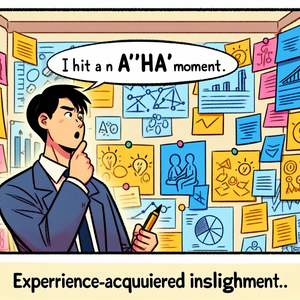Scientific Entrepreneurship: The Experimental Approach to Business Success

At the heart of scientific entrepreneurship is the willingness to experiment. Much like scientists testing hypotheses, entrepreneurs should approach their business ideas as experiments. This involves formulating hypotheses about market needs, customer behavior, or product viability and designing experiments to test these assumptions. For instance, launching a minimum viable product (MVP) allows entrepreneurs to gather real-world feedback and data, which can be analyzed to validate or refute their hypotheses. The key to successful experimentation is maintaining an open mind. Entrepreneurs must be prepared to pivot or adjust their strategies based on the outcomes of their experiments. This flexibility not only improves the product or service but also aligns the business more closely with market demands. The process is similar to conducting A/B testing in digital marketing, where two versions of a product or service are tested to see which performs better.
Learning from Failure
In both science and entrepreneurship, failure is an inevitable part of the process. Rather than viewing failure as a negative outcome, scientific entrepreneurship sees it as an opportunity to learn and grow. Each failed experiment provides valuable insights and data that can inform future decisions. By analyzing what went wrong, entrepreneurs can identify weaknesses in their strategy, understand their target audience better, and develop more effective solutions. Consider the example of Thomas Edison, whose countless failed attempts eventually led to the invention of the electric light bulb. Edison's approach epitomized the scientific entrepreneurship mindset, where persistence and learning from failure were integral to achieving success. Entrepreneurs who adopt this perspective are more likely to persevere through challenges and emerge stronger.
Iterative Testing and Refinement
Scientific entrepreneurship emphasizes the importance of iterative testing and refinement. This involves continuously testing, measuring, and refining business strategies based on feedback and results. By breaking down complex problems into smaller, manageable components, entrepreneurs can tackle each aspect systematically. One practical application of this approach is A/B testing, commonly used in digital marketing. By comparing two versions of a webpage or advertisement, businesses can determine which performs better and make data-driven decisions to optimize their marketing efforts. This iterative process ensures that businesses are constantly improving and adapting to changing market conditions.
The Role of Data-Driven Decision Making
Incorporating data-driven decision-making is crucial to the success of scientific entrepreneurship. Entrepreneurs must prioritize collecting and analyzing data from their experiments to guide their next steps. This data-driven approach minimizes guesswork and enhances the accuracy of business decisions. Tools such as customer analytics, surveys, and performance metrics provide valuable insights into customer preferences and behaviors. By leveraging this information, entrepreneurs can make informed decisions that align with their business goals and customer needs.
Scientific entrepreneurship offers a fresh perspective on navigating the complexities of business. By embracing experimentation, learning from failure, and adopting an iterative approach, entrepreneurs can transform challenges into opportunities for growth and innovation. This mindset not only increases the likelihood of success but also cultivates resilience and adaptability in an ever-changing business landscape. In a world where uncertainty is a constant, the scientific entrepreneurship approach empowers entrepreneurs to venture into the unknown with confidence, armed with the tools to learn, adapt, and ultimately succeed. By applying these principles, entrepreneurs can not only escape the rat race but thrive in their own ventures, turning hypotheses into successes and failures into stepping stones.
Product Innovation Manager
Procter & Gamble, Google, and Apple
Responsibilities
Drive the development and execution of new product initiatives using an experimental approach.
Collaborate with cross-functional teams to design and test product concepts, using MVPs to gather feedback.
Utilize market research and data analytics to identify trends and customer needs.
Required Skills
Strong foundation in market analysis and user experience design.
Data Scientist - Business Strategy
IBM, Amazon, and Deloitte
Responsibilities
Analyze large datasets to derive actionable insights that inform business decisions and strategies.
Develop predictive models to forecast market trends and customer behaviors.
Collaborate with stakeholders to design experiments that test business hypotheses.
Required Skills
Proficiency in programming languages like Python or R and experience with statistical analysis.
Growth Hacker
Startups, tech companies, and digital marketing firms like HubSpot
Responsibilities
Design and implement low-cost strategies to rapidly acquire and retain customers.
Conduct A/B testing to optimize marketing campaigns and user acquisition funnels.
Leverage analytics tools to measure and refine growth strategies based on performance data.
Required Skills
Blend of creativity, analytical thinking, and a strong understanding of digital marketing.
Agile Project Manager
Microsoft, Spotify, and IBM
Responsibilities
Oversee projects using agile methodologies, focusing on iterative development and experimentation.
Facilitate team collaboration to ensure efficient delivery of project goals and adapt to changes.
Implement continuous feedback loops to enhance product quality and team performance.
Required Skills
Skills in Scrum or Kanban frameworks and experience leading cross-functional teams.
UX Researcher
Adobe, Facebook, and Airbnb
Responsibilities
Conduct user research to gather insights on user behaviors, needs, and motivations.
Design and implement usability tests to refine product interfaces and user experiences.
Collaborate with product teams to integrate user feedback into design iterations.
Required Skills
Expertise in qualitative and quantitative research methods, along with strong communication skills.


